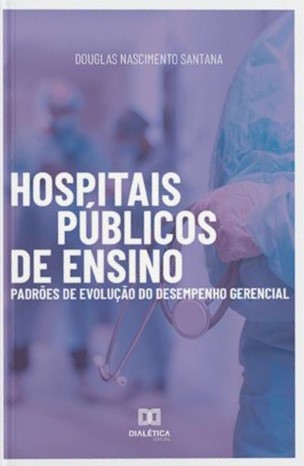Livres
Hôpitaux universitaires publics: les modèles évolutifs de la performance managériale
Editora Dialética
Hospitais públicos de ensino: padrões de evolução do desempenho gerencial [titre original]
Quelle est la meilleure façon de gérer les hôpitaux universitaires publics brésiliens en recherchant des performances maximales? Contrats de gestion, organisations sociales, entreprises publiques, partenariats public-privé … La réalité du secteur hospitalier nous confronte à une variété de concepts et de structures qui nous empêche de comprendre comment l’administration publique brésilienne gère ses organisations.
Partant d’une classification des hôpitaux universitaires en six types rendant intelligible cette réalité complexe, ce livre commence à répondre à cette question en racontant comment le système de santé brésilien s’est réorganisé autour du principe de l’efficacité.
L’efficacité en tant que principe ne signifie pas nécessairement des hautes performances dans le monde concret. Pour étudier ce phénomène, seules des discussions abstraites ne suffisent pas. L’auteur tourne donc notre regard vers le champ empirique. Il a réalisé une étude comparant l’évolution de la performance des activités d’assistance, d’enseignement et de recherche des hôpitaux participant au Système d’évaluation des hôpitaux universitaires de São Paulo, pendant cinq ans, en utilisant 26 indicateurs de production, de productivité et de qualité.
La réalité empirique était révélatrice. Même plongés dans un contexte d’incitation à l’efficience, les hôpitaux universitaires ont réagi différemment, pas toujours avec une amélioration de leurs performances. De nombreuses variables managériales peuvent déterminer ces différences dans le modèle d’évolution des performances ; mais il y en a trois qui devraient attirer notre attention en premier. Ce seront les variables qui seront discutées en profondeur dans cet ouvrage, une lecture obligatoire pour les professionnels de la santé qui s’intéressent à l’administration hospitalière et pour les managers qui s’intéressent au secteur de la santé brésilien.
A brotherhood Science Diplomacy: India-Brazil cooperation in biotechnology
Fundação Alexandre de Gusmão
Brazil and India share structural similarities. Both countries have vast territories, multiethnic populations, and are politically organized along the lines of mass democracies-albeit in the process of solving serious social inequalities. In addition to the abundance of natural resources, the two emerging giants have a high degree of industrialization owed to import substitution policies carried out during the second half of the last century. This inward-looking orientation has created complex yet incomplete industrial bases, marked by the coexistence of production sectors with a high-level of technological development, with others whose incorporation of technology is still incipient. This article draws attention to a sector in which India and Brazil, if considered individually, have the potential to reach high levels of technological development and productivity; and, if considered in partnership, meet all the necessary conditions for auspicious bilateral cooperation: the biotechnology sector. The biotechnology sector could serve as a substrate for the implementation of broader adjustments in the methods of conducting the general STI cooperation between India and Brazil. The proposed adjustments follow guidelines that bind them to an organic whole, here called Brotherhood Science Diplomacy. The cornerstone of the concept of Brotherhood Science Diplomacy is that cooperation in biotechnology, in particular, and in Science, Technology and Innovation, in general, could go beyond the formal legal linkage between governments, to achieve direct and continuous contact between managers, professionals, and researchers in the production microenvironment of high technology.




